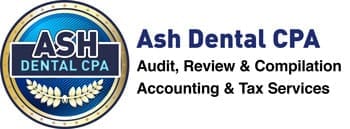7 Effective Tips to Streamline Dental Practice Bookkeeping

A dental practice is a place where people go to receive dental care. For this reason, dental practices use equipment, supplies, and materials specifically designed for dental procedures. However, a dental practice is still a business, meaning it has to keep its financial records through bookkeeping. Of course, bookkeeping is never easy, so many dental practices often struggle with it.
At its core, bookkeeping for a dental practice is the same as for any other business. However, the specifics of a dental practice, such as the types of procedures performed and the supplies used, can make bookkeeping more difficult. In addition, a dental practice might have to track the number of patients seen and the payments received for each patient. Because of this, streamlining the bookkeeping process is recommended, and there are several ways to do this, such as:
#1 – Organize Your Documents
One of the best ways to streamline your dental practice’s bookkeeping is to organize your documents. This might seem like an obvious solution, but it’s one that many dental practices don’t follow. You should have a place to store all of your invoices, receipts, and other financial documents. This way, you can easily find the documents you need when it’s time to do your bookkeeping. If you don’t have a place to store your documents, now is the time to create one.
#2 – Automate Your Bookkeeping
If you’re still doing your bookkeeping by hand, it’s time to automate the process. There are many bookkeeping software programs available that can help you keep track of your dental practice’s finances. In addition, many of these programs can be integrated with your dental practice’s other software programs, such as your patient management system. This way, you can automatically transfer data from your patient management system to your bookkeeping software, making the process easier and faster.
#3 – Keep Your Accounts Simple
Keeping your accounts simple means having just a few accounts for your dental practice’s finances. For example, you might have an account for your dental practice’s revenue and one for your dental practice’s expenses. This will make it easier for you to keep track of your dental practice’s finances.
Alternatively, you can keep track of your dental practice’s finances by using a software program to categorize your accounts. For example, you can create a category for your dental practice’s revenue and a category for your dental practice’s expenses. This way, you can easily see how much money your dental practice is making and spending.
#4 – Close Old or Unused Accounts
If you have old or unused accounts for your dental practice, you should close them. This will help you keep your dental practice’s finances organized. Additionally, closing old or unused accounts will help you save money on fees.
#5 – Cross-Reference Bank Statements
If you’re not already doing so, you should cross-reference your dental practice’s bank statements with your accounting records. This will help you identify discrepancies between your dental practice’s bank statements and your accounting records. Cross-referencing your dental practice’s bank statements will also help you catch any unauthorized transactions that may go overlooked, especially if you’re handling patients.
#6 – Avoid Mixing Personal and Business Transactions
Mixing personal and business transactions can make managing your dental practice’s finances difficult. Therefore, you should avoid mixing personal and business transactions. You should also avoid using your dental practice’s credit cards or bank accounts for private transactions.
#7 – Implement Financial Controls
Implementing financial controls can help you keep your dental practice’s finances organized. Financial controls can also help you prevent errors and deter theft. Some examples of financial controls you can implement in your dental practice include requiring employees to get approval before making purchases and requiring employees to maintain a log of all cash transactions.
Conclusion
Bookkeeping for a dental practice is required to ensure that the practice is run smoothly and efficiently. Because of this, you must keep accurate records and have a system to help you with the process. When you do, your practice will run more smoothly, and you will have more time to focus on other aspects of your business.
Ash Dental CPA provides top-quality dental bookkeeping services. We understand dental practices’ work, so we’re here to take some of the burden off your load for affordable prices. Call (508) 458-6789 today to schedule an appointment!
